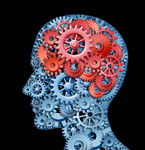The Science Network: Interview with Karl Deisseroth
May 25, 2013
Karl Deisseroth, MD, PhD is a psychiatrist and neuroscientist at Stanford University. His previous research included studies on the cellular and molecular underpinnings of brain physiology, and in particular, the biochemical networks which function during electrical activity in neurons to mediate memory storage. His current research is targeted toward understanding of higher-level cognitive function, including the mechanism of generation of subjective sensation from neuronal activity. His lab’s research goals include adapting molecular and cellular techniques to study the assembly and behavior of intact neuronal systems, using neural stem cells and novel tissue engineering techniques.


